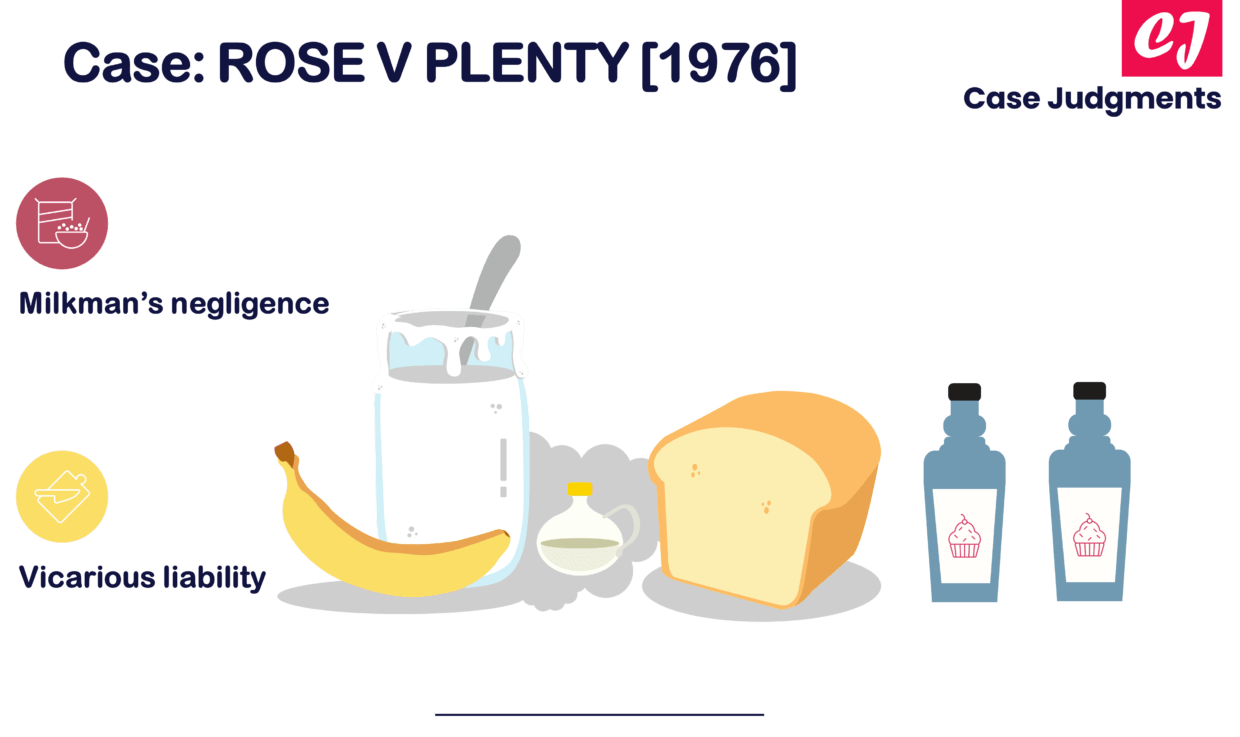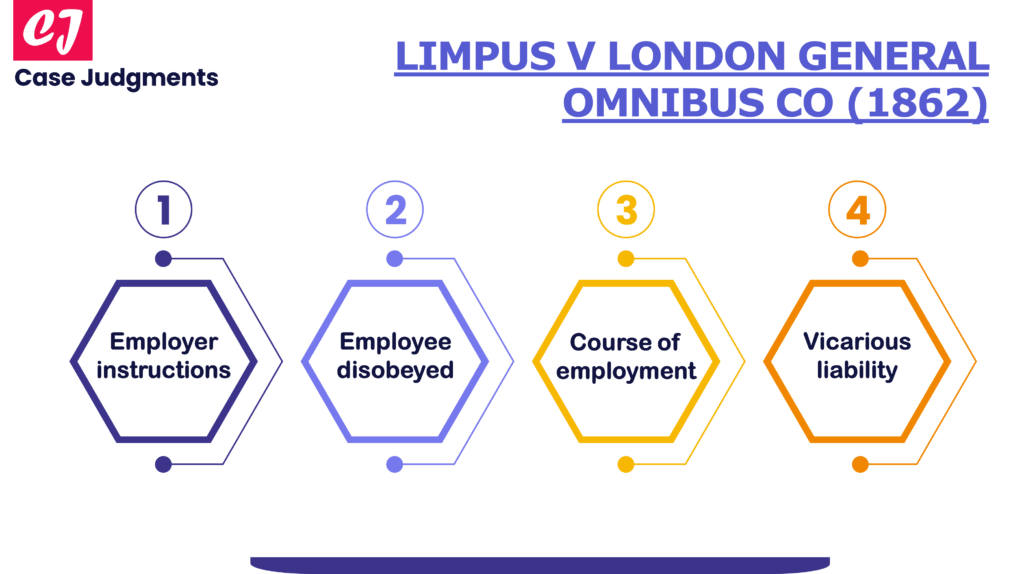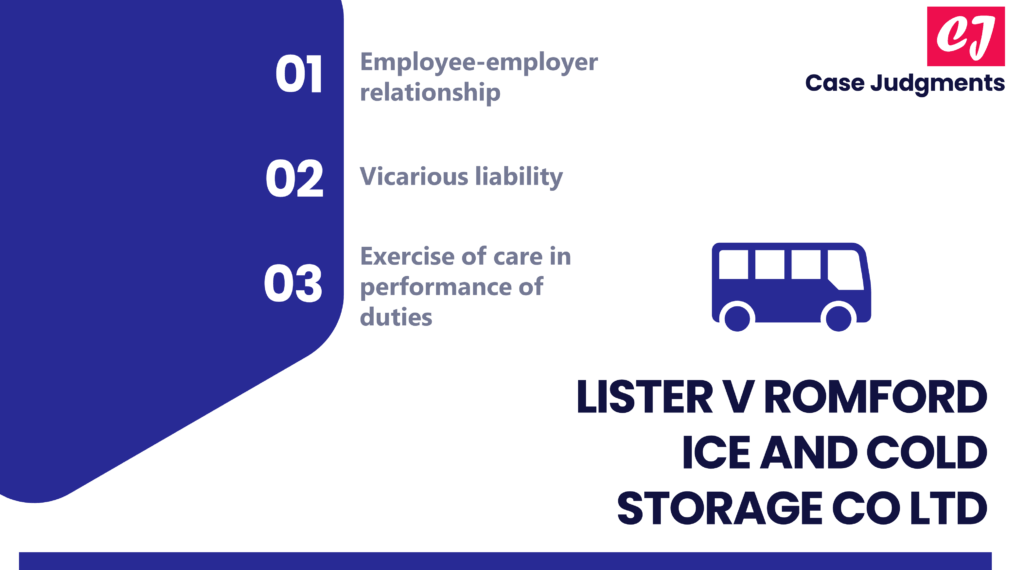
Rose v Plenty [1976]: A Case Summary
Case name & citation: Rose v Plenty [1976] 1 W.L.R. 141
Court and jurisdiction: Court of Appeal, England and Wales
Decided on: 07 July 1975
The bench judges: Lord Denning, Scarman LJ and Lawton LJ
Area of law: Vicarious liability; Employee acting against orders
What is the case about?
Rose v Plenty [1976] is a famous case on the vicarious liability of employers.
Facts of the case
A milkman was instructed by his employer not to allow passengers on his float. He was also prohibited from employing children to assist him in delivering the milk. The milkman ignored the order and engaged the claimant, a 13-year-old boy, to assist him. The boy was injured due to the milkman’s negligent driving.
Issue
Was the employer responsible for the negligence of the milkman?
Judgment of the Court in Rose v Plenty
Held: The employer was liable.
The employer was found to be vicariously liable by the court because the prohibition did not affect the job or duties that the milkman was required to do but rather the manner in which he should perform it. He was doing his job albeit in a manner his employer disapproved of.
In other words, when the milkman hired the boy to help him deliver milk, he was acting in the course of his employment because the milkman’s job/duty was to deliver milk, and hiring the boy helped him do his job.
A contrary view
The Courts took a conflicting view in Twine v Bean’s Express Ltd (1946).
Here, a van driver was instructed not to give lifts to unauthorized persons and a notice to this effect was put up on the dashboard of the van. Despite this, he gave a lift to an unauthorized person. As a result of the driver’s negligence, the passenger died.
It was held that because the employee was not acting in the course of his employment at the time of the accident, the employer was not held liable for the incident.
The driver was performing an unauthorized act, so he was acting outside the scope of his employment.
Comparing Rose v Plenty and Twine v Bean’s Express
In Rose v Plenty, the Court found that the employee was performing his job, but he was doing it in a way that the employer had specifically instructed him not to. In spite of this, he was working within the scope of his employment because the work that he was doing was for the benefit of the employer’s business.
On the contrary, in the case of Twine v Bean’s Express, the express prohibition on offering lifts was not simply a prohibition, but it was also a limiting factor on the scope of employment. The driver was acting outside the scope of his employment. Moreover, giving lifts to unauthorized persons was not viewed to be in the interest of the employer.
Thus, even though the employer forbids a certain activity, he can still be held liable for it if the activity was carried out with the intention of benefiting the employer. This does not seem to be appropriate. However, if the employer does not benefit from the act, then it is possible that the employer will not be liable. This is what happened in the case of Twine v Bean’s Express. This demonstrates that there is a very fine line between what constitutes vicarious liability and what does not, which can sometimes lead to uncertainty. The Courts carefully analyze the facts and circumstances of each case before giving their decision.
List of references:
- http://www.nadr.co.uk/articles/published/sport/SportLecture007.pdf
- https://media.malawilii.org/files/judgments/mwhc/2018/1102/2018-mwhc-1102.pdf
- https://www.studocu.com/my/document/universiti-teknologi-mara/law-of-torts-ii/vicarious-liability-summary-law-of-torts-ii/3906092
- https://swarb.co.uk/twine-v-beans-express-ltd-ca-1946/
- https://www.lawteacher.net/free-law-essays/tort-law/tort-vicarious-liability.php
You might also like:
More from tort law:

